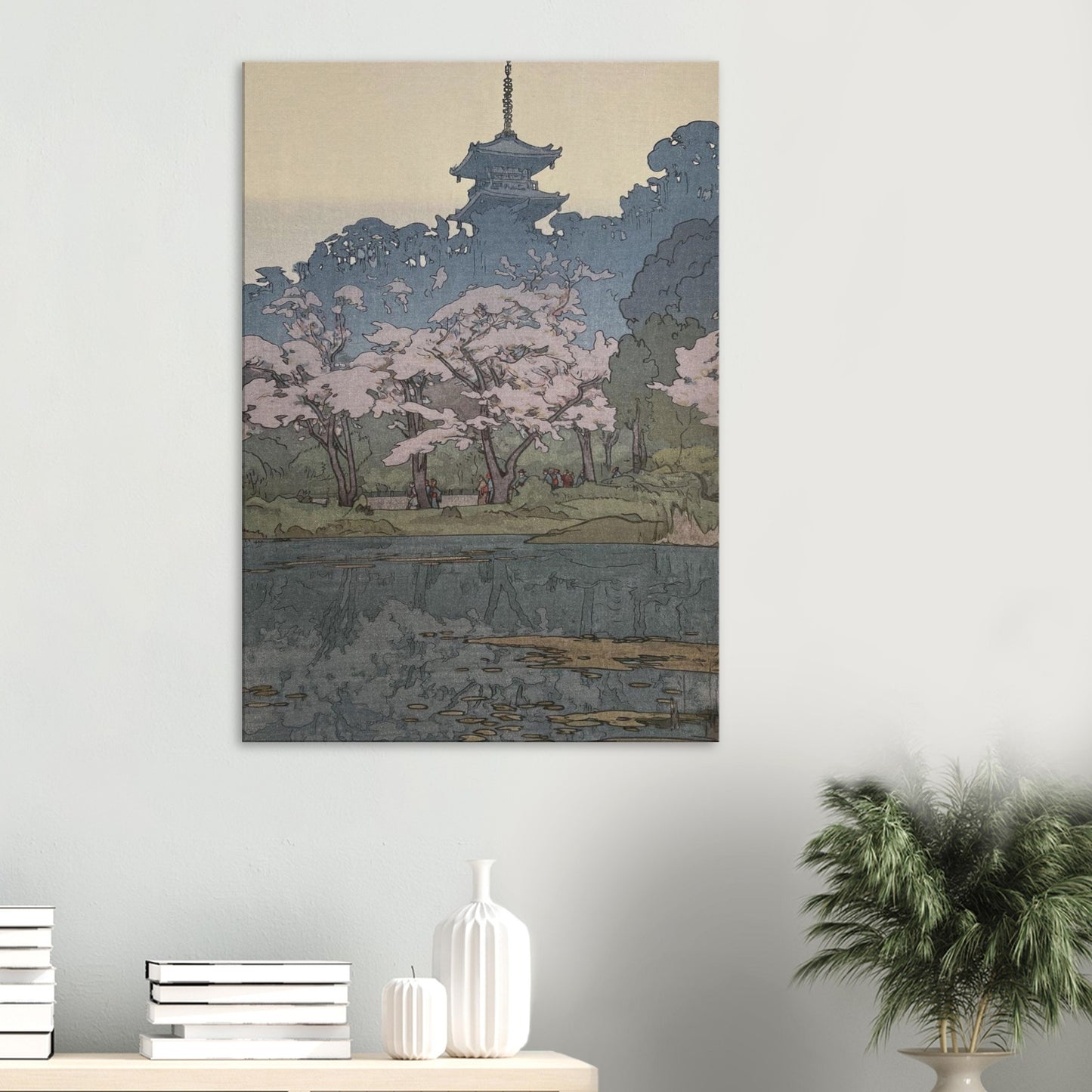Sankeien by Hiroshi Yoshida - Canvas Print
Sankeien by Hiroshi Yoshida - Canvas Print
Couldn't load pickup availability
Immerse yourself in the textured beauty of Yoshida's garden scene with this gallery-wrapped canvas.
About the Artwork
"Sankeien" is a woodblock print from Yoshida's Eight Views of
Cherry Blossoms series, created in 1935. The scene frames a quiet
garden (likely Yokohama's Sankeien) with cherry blossoms. Yoshida's layered
hues and soft edges suspend petals mid-fall, immortalizing a private moment of
spring's elegance. The composition's restrained palette and delicate bokashi
gradations create an atmosphere of tranquil contemplation, characteristic of
Yoshida's mature shin-hanga style. This print demonstrates his mastery of
capturing both the grandeur of nature and the intimacy of secluded spaces.
Print Details:
Our canvas print adds remarkable depth to Yoshida's composition, with the
textured surface enhancing both the garden setting and delicate falling petals.
Hand-stretched over a 2cm (0.8") wooden frame, this ready-to-hang piece
faithfully reproduces the artwork's subtle color transitions while adding dimensional
quality. The sturdy canvas (300-350gsm) captures every nuance, from the finest
blossom details to the softest background gradations.
Features:
· Canvas has an approximately 2cm /0.8" thick wood stretcher bar
· The paper weight is approximately 300-350gsm/110-130lb cover and a thickness of 350-400 microns, a sturdy and durable canvas
· We've included a hanging kit, which may vary depending on the country of fulfillment
· To ensure no damage during transportation, we ship our canvas prints in protective packaging and strong boxes
· Sizes may vary slightly by region. For the US and Canada, the measurement is in inches, while for the rest of the world, it is in centimeters
Bring the serene beauty of Yoshida's private garden into your home with this textured masterpiece.
This Canvas Print is made especially for you when you place an order, which is why it takes us a bit longer to deliver it. Making products on demand instead of in bulk reduces overproduction and waste, so thank you for making a thoughtful purchasing decision!
Share












